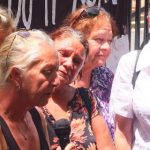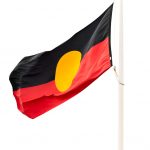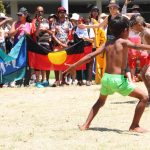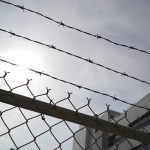Indigenous Treaties: An Interview with Narungga Elder Tauto Sansbury
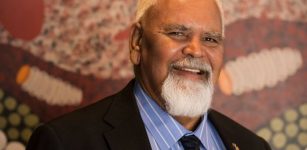
Many are calling it a historic event, while others are saying it’s about time. Several state governments around Australia are finally entering into treaty discussions with the nation’s First Peoples.
The South Australian government announced last week that it will begin working on treaties with local Aboriginal nations. The state government has set aside $4.4 million over a five year period to support the process and will be appointing an independent commissioner for treaty.
The treaty process
South Australian Aboriginal affairs minister Kyam Maher said he hoped the first treaties would be signed off on by the end of next year, with others being written into law over time.
“If it is treaties with Aboriginal nations in South Australia, we recognise that will take some time, but it’s a process we’re committed to and we’ll get started from today,” the minister said.
It’s currently unclear as to what form the treaties will take or whether financial compensation will be included. But legislation will be tabled in parliament, which will set out the guiding principles for engagement and consultation.
Indigenous leaders throughout the state have welcomed the move. But many are wary of the process, as representatives from only three Aboriginal nations have met with the minister for the initial negotiations. And there are 27 First Nations groups in the state.
State governments leading the charge
The debate over a treaty goes back to 1988 when then prime minister Bob Hawke was presented with a treaty petition, known as the Barunga statement. But it now seems that state governments are leading the way.
The Victorian government began treaty talks with local Indigenous nations in February this year. A meeting of First Nations representatives, convened by the state government, voted to reject constitutional recognition in favour of a treaty and self-determination.
While in the Northern Territory, the incoming chief minister Michael Gunner said in September his government would establish a subcommittee into Aboriginal affairs to commence treaty discussions between the territory government and local Indigenous nations.
Australia is the only Commonwealth country that has not established a treaty with its First Peoples. New Zealand and Canada have treaties in place that incorporate compensation, as well as land and fishing rights.
Constitutional recognition
The Australian constitution doesn’t recognise Aboriginal and Torres Strait Islander people. Over the past six years, there’s been a push by the federal government and groups like Recognise, to hold a referendum to obtain this recognition.
However, many Indigenous leaders see constitutional recognition as a mere token gesture that will provide no real improvements for First Nations communities.
A Narungga activist
Tauto Sansbury (pictured) is the native title applicant for native title rights for the Narungga nations on the Yorke Peninsula. And he’s a lifelong Aboriginal rights activist.
Sansbury was awarded the NAIDOC Lifetime Achievement Award in 2015 and today runs the Garridja Aboriginal Cultural Consultancy. He also called for the National Freedom Summit – a group of 20 delegates advocating for Aboriginal sovereignty and treaty – in Alice Springs in November 2014.
Sydney Criminal Lawyers® spoke with Tauto Sansbury about the South Australian government’s move to enter into treaty discussions with the state’s Aboriginal nations.
Last week, the South Australian government announced it will be entering into treaty discussions with local Aboriginal nations. What do you think about this development?
I welcome the announcement that there’s going to be a treaty discussion. And I welcome that with open arms.
But unfortunately, what concerns me a lot is that there were only three nation groups invited to that announcement, and we’ve got 27 Aboriginal tribal groups in South Australia.
I’m open and happy for the treaty discussion. But I want it to be a transparent and rigorous one, and we get out what we really want to put into it.
Are the Narungga nations one of the three?
No. The three that were invited were the Adnyamathanha, the Ngarrindjeri and the Far West Coast.
It’s unclear as to what the treaties will cover. What do you envisage this process will entail?
I hope it entails a lot of open discussion. That the Aboriginal communities get their point of view over and what they really want out of it.
I was quite concerned the minister for Aboriginal affairs Kyam Maher said that we’ll have our first treaty up within 12 months. I think that’s totally unacceptable. And for me that sounds like it could be a well-oiled service agreement, rather than a treaty.
We’ve really got to debate the issues from 1836 right up until this present day. So 12 months is totally unacceptable and it’s a statement that shouldn’t have been made.
Why is it important that Australian state governments establish treaties with Indigenous nations?
It’s very important because of what has happened. Because of the invasion to each country within South Australia and Australia.
This has to be recognised. We’re going into 2017. Australia is the only Commonwealth country that has not signed off a treaty with its Indigenous people.
And what do you think about Australia being the only Commonwealth nation that doesn’t have a treaty with its Indigenous people? Why is that the case?
Its total disrespect. The fact is that we’ve had an invading country come into our place, take control, set up police and set up all the other authorities to keep us out of our own country, and out of our own business.
We’re now going to be debating the issue about a treaty with an illegal entity anyway. This is what concerns me a lot.
The Labor government – I’m glad that they did it – but I’m not sure why they did at such a late stage. We’re into December and for the last year and a half we’ve been fighting the Labor government in relation to the nuclear dump that Jay Weatherill wants to put in.
I’m just wondering if this is the carrot that they’re offering the Aboriginal community. We’ll give you a treaty, you give us a dump. I’m not sure about this and this is a debate that we’ve got to have.
In February, the Victorian government began treaty discussions with First Nations peoples there. What do you understand has happened in Victoria?
Well I know that they’re still having big discussion over there about the treaty. And they’re still debating a lot of issues.
But the thing about the one over there is that the Victorian government actually spoke to the Aboriginal community of Victoria about it. And that was the great thing about it.
At this present moment, South Australia hasn’t done that. They’ve opened this up for three tribal groups to have a discussion about treaty, which can set the benchmark for other ones in relation to what they would like within the treaty discussion.
This is totally unacceptable. Three groups cannot make a decision on what really should happen in relation to discussions.
What do you think about the push for constitutional recognition?
I think it’s a cheap get out of jail card for the federal government. One of the things about this is I’ve always been a treaty man, and I’ll continue to focus and talk about treaty.
If the referendum is going to happen, I think it should happen after a treaty. And the treaty be recognised in the constitution.
A treaty will have to be embedded in the federal and state constitutions to make sure that it’s an ongoing document of acknowledgement of Aboriginal country.
You were involved in the 1991 Royal Commission into Aboriginal Deaths in Custody. Twenty five years on, there are still deaths like that of Ms Dhu in Western Australia and Rebecca Maher in NSW in this year.
How would you describe the situation for Aboriginal people facing incarceration today?
The situation is totally unacceptable. The Royal Commission had 339 recommendations.
Unfortunately, not many of them have been implemented and what has been is sort of easy to do. We needed the full implementation of the 339 recommendations.
We’ve had Ms Dhu and we’ve also had young Morrison, only this year in South Australia, who died in custody. And we’re continuing to have many more.
On top of that, the high incarceration rate. The whole kit and caboodle of what’s happening to Aboriginal affairs many of them could have been dealt with in the 339 recommendations.
I honestly believe we’re in a worse predicament now than we were in 1991.
Aboriginal and Torres Strait Islander people are hugely overrepresented in the Australian criminal justice system. Indigenous people represent 3 percent of the overall Australian population, but 28 percent of those people imprisoned in Australia.
Why is this continuing today? And what do you think has to be done to curb this overrepresentation?
Well I think one of the things is that the Royal Commission into deaths in custody wasn’t implemented to take into account and work on all of these programs.
We’re looking for too many programs outside of Australia to solve the Aboriginal problems we have within the incarceration system.
And governments are just giving a piecemeal agreement and funding for one, two or three years – this cannot solve anything that is transgenerational – that’s had lasting impact. We need good programs and good funding.
Unfortunately, the Australian and state governments have not taken on board the importance of Aboriginal involvement in this process of rehabilitation and to reduce incarceration or the recidivism rate.
There were concerns at the beginning of last year that remote Aboriginal communities in South Australia could face closure due to federal government funding cuts. But the government announced in April last year it would continue funding to these communities for the time being.
What’s the situation like today for these remote communities? Is their funding secured?
No, I don’t think funding is secured. I know my community doesn’t have secure funding on the Yorke Peninsula. I know the Aṉangu Pitjantjatjara Yankunytjatjara Lands has great concerns about the management through the state government and through the Aboriginal Lands Trust that’s been involved in all of this.
It’s about time that control was given back to Aboriginal people to run their country. And I’m still concerned that at the end of the day, many of these Aboriginal communities will be closed down, because I always believe there’s a hidden agenda behind what state and federal governments are doing to our people.
And lastly, today you run Garridja Aboriginal Cultural Consultancy. Can you tell us a little about what your organisation does?
I do a lot of presentations – for judges, magistrates, psychologists, university students and Aboriginal and non-Aboriginal people working within the system – talking about the truth in what’s happened in Australia and what continues to happen.
We tell the truth about Closing the Gap that I don’t think is really working at this present moment. And all of the other issues that many non-Aboriginal and Aboriginal people don’t really understand within the political system and how we’ve been controlled by that.
I’ve done this for a while now, and I continue to do it, because I think it’s important. If you don’t know what’s happening, then you don’t know how to deal with it.
My program has been well received. I’ve got good feedback from the presentations that I’ve done. And I’ll continue to do this for as long as I can walk.
Tauto thank you very much for speaking with us today. And best of luck with the treaty discussions.
One other thing I’d like to say is that Mandela said if it’s not in the constitution, it’s not in the classroom. And I say that because I believe our treaty should be written into the constitutions.
And thank you very much.


